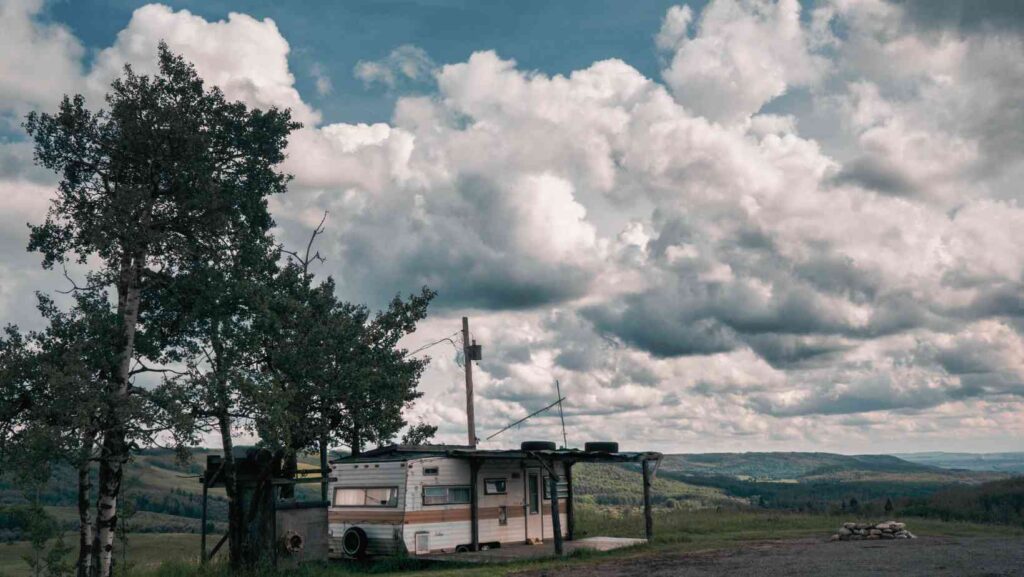Is Living off Grid Worth It?
living off the grid for beginners can be worth it for some, but not for everyone. It depends on individual values, resources, and lifestyle preferences.
Living off the grid is an enticing concept for those seeking a more self-reliant and environmentally conscious lifestyle.
But is it truly worth it? In this article, we will explore the advantages and challenges of living off the grid, helping you make an informed decision about whether this alternative way of life aligns with your values and goals.
Living off the grid offers numerous benefits. Firstly, it allows you to reduce your environmental impact by minimizing reliance on fossil fuels and conventional energy sources.
Embracing renewable energy options such as solar panels or wind turbines enables you to generate your own power sustainably. Additionally, growing your own food through organic farming practices promotes self-sufficiency and reduces your carbon footprint.
Another advantage of living off the grid is the opportunity for greater financial independence.
By disconnecting from utility companies, you can significantly reduce or eliminate monthly bills for electricity, water, and gas.
Over time, the initial investment in off-grid systems can lead to long-term cost savings. Moreover, living off the grid often encourages a simpler lifestyle, which can reduce the need for excessive consumption and expenses.

Credit: www.reddit.com
The Pros Of Off-Grid Living: Disadvantages Of Living Off The Grid
Living off-grid is a growing trend, with more and more people opting for a simpler, sustainable lifestyle.
While it may not be for everyone, there are plenty of good reasons to consider the pros of off-grid living.
In this post, we will explore three compelling advantages of living off-grid: financial savings, independence, and environmental benefits.

Financial Savings: Is It Expensive To Live Off The Grid
Living off-grid can be a smart financial choice. By reducing reliance on the conventional power grid, you can enjoy significant savings on utility bills. And Easily reduce the monthly cost of living off-grid.
Here are some ways in which living off-grid can save you money:
- Lower electricity bills: Generating your power or using alternative forms of energy like solar, wind, and hydropower can significantly reduce your electricity bills.
- Minimal water bills: An off-grid lifestyle often means using rainwater or well water, saving significant amounts on water bills.
- No property taxes: Off-grid land is typically in remote areas, which may reduce property taxes.
- Reduced food expenses: Living off the grid often involves growing your food, reducing grocery bills.
Independence And Control Over Your Life
One significant advantage of off-grid living is the independence and control it offers over your life. Here are some of the ways living off-grid can provide more control over your life:
- Greater self-sufficiency: Living off-grid means being less dependent on others and taking care of yourself, leading to more self-sufficiency.
- Slower pace of life: Off-grid living often involves a slower pace of life, with less emphasis on fast-paced societal norms.
- More decision-making power: You have greater control over how to source energy, food, and water, reducing reliance on outside sources and giving more power to make decisions in your life.
Environmental Benefits
There’s no denying that off-grid living is one of the most environmentally-friendly ways to live. Here are some of the environmental benefits of living off-grid:
- Reduced carbon footprint: Since off-grid living reduces reliance on conventional energy systems, you’ll enjoy a lower carbon footprint.
- Decreased use of fossil fuels: Fossil fuels are finite resources, which means that alternative forms of energy may be needed in the future. Off-grid living usually involves using alternative energy sources and reducing dependence on fossil fuels.
- Preserving natural habitats: Living off the land generally leads to a more eco-friendly approach to life, making it a sustainable option that gives back to the earth.
Living off-grid has many benefits, from financial savings to independence and environmental benefits. While it’s not for everyone, if you’re looking for a sustainable lifestyle with greater control over your life, then off-grid living could be worth considering.
The Challenges Of Off-Grid Living
Living off-grid comes with a romanticized idea of returning to a simpler way of living, but the reality can be quite different. In this blog, we examine whether living off-grid is worth it, focusing on the challenges of off-grid living.

Lack Of Amenities
One of the significant challenges of off-grid living is the lack of amenities. This can be particularly difficult for those used to modern conveniences. Here are some of the amenities that may be lacking in off-grid living:
- Electricity: Solar or wind generators may be used, but they can sometimes be unreliable. Another thing is offgrid solar system cost which you should remember.
- Running water: Rainwater must be collected, filtered, and stored for daily use.
- Climate control: Heating and cooling are challenging without connection to a power grid.
- Internet and phone service: Living off-grid may mean little to no internet or phone service.
Maintenance And Repairs
Living off-grid requires some maintenance and repair work to maintain the necessary infrastructure. These include:
- Solar panels or wind turbines: Cleaning, repairs, and alignment.
- Water system: Maintenance of pumps, filtration equipment, and storage tanks.
- Waste management: Proper composting and waste management to avoid attracting pests or polluting the environment.
- Buildings and structures: Maintaining the condition of the buildings, leakage repairs, and painting require frequent attention.
Living off-grid comes with its own set of challenges, including the lack of amenities, maintenance requirements, and emotional and psychological factors. However, it can also be a rewarding experience, providing an opportunity to reconnect with nature and live a simpler life.
Off-Grid Living Techniques And Strategies

Living off-grid has become increasingly popular, especially among those who want to live sustainably or environmentally conscientious lifestyles. Off-grid living involves disconnecting from public utilities such as electricity grids, water supply systems, and waste management systems. However, people living off-grid require a set of techniques and strategies to be self-sufficient.
We’ll explore some of the key techniques and strategies necessary for successful off-grid living under the headings: water collection and storage, energy generation, food and agriculture, and waste management.
Water Collection And Storage
Collecting and storing water is a critical aspect of off-grid living. Here are some techniques and strategies for water collection and storage:
- Install rain gutters and diverters to collect rainwater from the roof.
- Use a water filtration system for drinking water.
- Have ample storage tanks to capture collected water.
- Use graywater for irrigation and other non-potable needs.
Energy Generation
Generating energy is another crucial factor in off-grid living. Power is required for heating, cooling, lighting, and more. Here are some strategies for energy generation:
- Consider solar panels for electric power generation.
- Wind turbines can also produce energy depending on the location.
- Hydropower energy generation involves using water to create electricity.
- Use a wood stove for heating.
Food And Agriculture
Growing your food is a key aspect of self-sustainment. Here are some strategies for food and agriculture:
- Cultivate a vegetable garden with micro greens and plants that thrive in your climate.
- Practice hydroponics, which is growing plants without soil and in water.
- Rear livestock such as chickens and goats for milk, eggs, and meat.
- Forage for seasonal, wild edibles such as berries, mushrooms, and fruits.
Waste Management
Off-grid living also involves managing waste without the help of public services. Here are some strategies for waste management:
- Use a composting toilet to recycle human waste and use it to fertilize plants.
- Use a septic system for wastewater treatment.
- Recycle, reduce, and compost to minimize the creation of waste.
- Use alternatives such as cloth napkins and reusable items to avoid creating waste.
Off-grid living requires various techniques and strategies to achieve a self-sufficient lifestyle. By adhering to these strategies under the headings of water collection and storage, energy generation, food and agriculture, and waste management, you can efficiently live off-the-grid, save money in utility bills, and protect the environment.
Frequently Asked Questions Of Is Living Off Grid Worth It
What Are The Benefits of living off the grid?
The benefits of living off-grid include a reduced ecological footprint, reduced reliance on the government and corporations, lower living costs, and the ability to connect with nature.
Is It Legal To Live Off-Grid?
Yes, it is legal to live off-grid in most countries, including us and Canada. However, there might be restrictions and regulations on the type of property and location where you can live off-grid.
How to live off the grid with no money?
Living off the grid with no money can be challenging, but it is not impossible. Here are some suggestions on how to pursue a more self-sufficient lifestyle without relying on traditional infrastructure or financial resources:
- Simplify Your Needs: Start by simplifying your lifestyle and reducing your needs. Embrace minimalism and prioritize the essentials. Assess your current expenses and eliminate unnecessary costs.
- Secure Land: Look for affordable or free land options. This could include joining or starting a land-sharing or community project where individuals pool their resources to purchase or utilize land collectively.
- Alternative Housing: Explore low-cost or DIY housing options such as tiny houses, mobile homes, or converted vans. Utilize recycled or reclaimed materials for construction. Consider natural building techniques like cob, straw bale, or earthbag construction.
- Renewable Energy: Harness renewable energy sources to power your off-grid lifestyle. Solar panels, wind turbines, or micro-hydro systems can provide electricity. Look for second-hand or discounted equipment, and learn to build and maintain them yourself.
- Food Production: Grow your own food by establishing a garden or permaculture system. Practice composting, rainwater harvesting, and natural pest control methods. Consider community gardens or shared agricultural spaces if you don’t have access to land.
- Water Management: Develop water self-sufficiency by collecting rainwater and implementing water conservation techniques. Use filters or purification methods to ensure a safe water supply.
- Bartering and Trading: Engage in bartering or trading goods and services with like-minded individuals or within local communities. Exchange surplus produce, homemade crafts, or skills to meet your needs without money.
- Learn Homesteading Skills: Acquire essential skills like gardening, preserving food, animal husbandry, carpentry, and basic repairs. Seek out free resources, online tutorials, or community workshops to develop these skills.
- Community Engagement: Connect with like-minded individuals in your community who are interested in sustainable living and off-grid lifestyles. Collaborate, share resources, and learn from each other’s experiences.
- Resourcefulness and Creativity: Embrace a mindset of resourcefulness and creativity. Repurpose items, practice upcycling, and find innovative solutions to everyday challenges.
What Are The Challenges Of Living Off-Grid?
Challenges of living off-grid include irregular access to resources, like electricity and water, potential isolation and limited social contacts, and a greater responsibility for your own maintenance and repairs.
Can You Still Have Modern Amenities While Living Off-Grid?
Yes, you can still have modern amenities like internet connectivity, power tools, and appliances while living off-grid. You will need to adapt these modern technologies to fit your self-sustaining lifestyle.
Is it cheaper to live off the grid?
Living off the grid can potentially be cheaper in the long run due to reduced utility bills and a simplified lifestyle.
What are the downsides of living off the grid?
Living off the grid offers numerous benefits, but it also has some downsides to consider:
- Initial Investment: Transitioning to an off-grid lifestyle often requires a significant upfront investment. Costs associated with renewable energy systems, water collection, and sustainable infrastructure can be high, which may pose a financial challenge for some individuals.
- Limited Resources: Off-grid living typically involves a reduced access to resources such as water, electricity, and waste management. You will need to be mindful of your resource consumption and find alternative solutions to meet your needs.
- Maintenance and Self-Reliance: Living off the grid often requires self-reliance and a hands-on approach to maintenance and repairs. You will be responsible for managing and troubleshooting your renewable energy systems, water collection systems, and other infrastructure components.
- Intermittent Energy Supply: Renewable energy sources, such as solar or wind power, are dependent on weather conditions. This means that energy availability may fluctuate, leading to periods of limited power supply during cloudy or windless days.
- Limited Amenities: Living off the grid might mean sacrificing certain modern amenities or conveniences. For example, you may have limited access to high-speed internet, television, or other technologies that rely on a reliable grid connection.
- Social Isolation: Off-grid living can lead to social isolation, especially if you are located in a remote area. Limited access to public services, reduced interaction with neighbors, and distance from urban centers can impact social connections.
- Regulatory Challenges: Depending on your location, living off the grid might face legal or regulatory hurdles. Zoning regulations, building codes, and permit requirements may restrict or complicate your efforts to establish an off-grid lifestyle.
- Weather Dependency: Off-grid living can be affected by extreme weather conditions. Storms, heavy snowfall, or other severe weather events may impact your energy production, water collection, and overall self-sufficiency.
Is living off-grid realistic?
Living off-grid is a realistic lifestyle choice for some, but feasibility depends on individual circumstances and the willingness to embrace self-sufficiency.
Conclusion
Living off-grid can be a rewarding and fulfilling experience for those who are up for the challenge. It offers a sense of self-sufficiency and freedom that can’t be found in modern society. However, there are also downsides such as the initial investment, the need for constant maintenance and upkeep, and the potential isolation from broader society.
It really comes down to individual priorities and values. While living off-grid may not be for everyone, those who prioritize sustainability, independence, and simpler living may find it well worth it. It’s a lifestyle that requires thoughtful decision-making and commitment, but for those who are willing to put in the effort, the benefits can be endless.
With careful planning, resourcefulness, and creativity, living off-grid can offer a unique and fulfilling way of life that’s both sustainable and rewarding.


2 thoughts on “Is Living off Grid Worth It?”